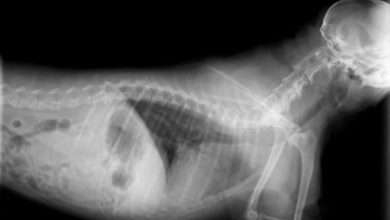How to Keep Your Dog Safe: What to Do If They Drink Rainwater

1. Introduction
Rainwater is a natural source of water that can be beneficial to both humans and animals, but there are some potential risks if your dog drinks rainwater that you should be aware of. In this article, we’ll discuss the potential health risks of drinking rainwater, what signs and symptoms to look out for if your dog has drunk rainwater, and tips for prevention.
2. What is Rainwater?
Rainwater is water that has been collected from the atmosphere after condensation from clouds or precipitation such as snow or hail. It is a natural source of water that can be beneficial to both humans and animals alike. Rainwater is often used in agriculture, for irrigation purposes, and in many homes as a source of drinking water.
3. Is it Safe for Dogs to Drink Rainwater?
In general, rainwater is safe for dogs to drink; however, there are some potential risks associated with drinking contaminated rainwater. Contamination can occur when rain falls through polluted air or runs off surfaces like roads and roofs that may contain pollutants such as oil and chemicals. Additionally, standing bodies of water such as ponds or puddles can contain harmful bacteria and parasites that could make your dog sick if they drink it.
4. Potential Health Risks of Drinking Rainwater
The potential health risks associated with drinking contaminated rainwater include gastrointestinal distress (diarrhea, vomiting), dehydration due to loss of body fluids, infections due to bacteria or parasites found in the water, and other illnesses caused by pollutants found in the water such as heavy metals or toxins from oil spills.
5. Signs and Symptoms of Illness in Dogs After Drinking Rainwater
If your dog has drunk contaminated rainwater, they may display signs and symptoms of illness including vomiting, diarrhea, lethargy or lack of energy, loss of appetite, increased thirst or urination frequency, fever or chills, coughing or difficulty breathing, seizures or muscle tremors. If you notice any of these signs in your pet after they have drunk rainwater then seek immediate veterinary attention as soon as possible.
6. Treatment Options for Dogs Who Have Drunk Rainwater
If your pet has ingested contaminated rainwater then it’s important to seek veterinary attention immediately so that they can receive appropriate treatment which may include medications such as antibiotics or anti-parasitics depending on the cause of their illness; intravenous fluids if they are dehydrated; electrolyte replacement therapy; supportive care such as rest; and dietary changes such as feeding them a bland diet until their symptoms improve.
7. Prevention Tips for Keeping Your Dog Safe from Contaminated Water Sources
The best way to keep your dog safe from contaminated water sources is by providing them with clean drinking water from a reliable source such as tap water or bottled water rather than letting them drink from puddles or other standing bodies of water outside which could contain pollutants or bacteria/parasites which could make them sick if ingested. Additionally try to keep them away from areas where there may be runoff from roads/roofs which could contain pollutants like oil/chemicals which could also make them ill if ingested even in small amounts over time so it’s best to avoid these areas altogether if possible!
8 Conclusion
Rainwater can be a beneficial source of hydration for both humans and animals alike but it’s important to remember that there are some potential risks associated with drinking contaminated rainwater which could lead to serious illness in pets especially if left untreated so always provide clean drinking water from reliable sources instead! Additionally try to keep pets away from areas where there may be runoff containing pollutants like oil/chemicals which could also make them ill over time even in small amounts so it’s best to avoid these areas altogether if possible!
9 Resources
.American Veterinary Medical Association (AVMA). (n.d.). Pet owners: How do I prevent my pet’s exposure? Retrieved April 2nd 2021 From https://www.avma

